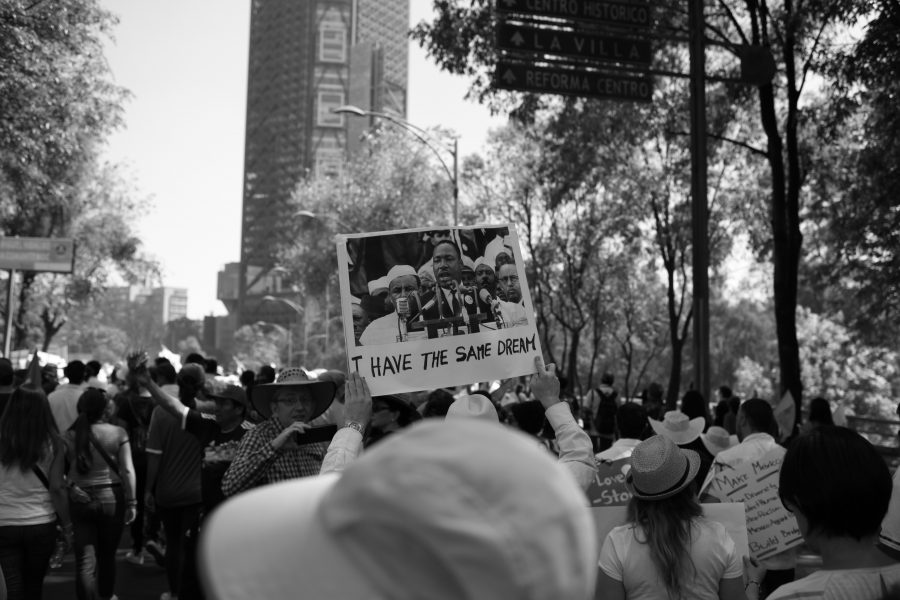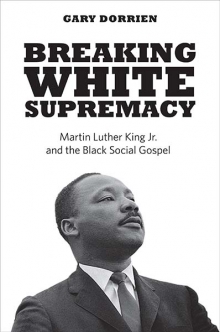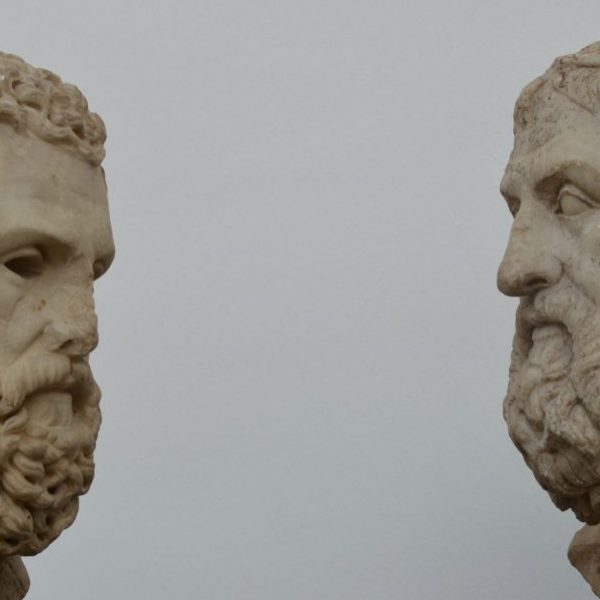Struggling and Failing to Break White Supremacy and Injustice
Gary Dorrien—
Martin Luther King Jr., at the end of his life, fixed on three reform objectives, a movement ambition, and something bigger. The policy objectives were to terminate racial discrimination in housing, establish a minimum guaranteed income, and end America’s global militarism. Sometimes he put it in ethical terms, as in his magnificent Riverside Address of April 4, 1967, with exactly one year of life remaining to him, calling America to repudiate its “giant triplet of racism, materialism, and militarism.” Meanwhile, King tried to build a multi-racial poor people’s movement for social justice, declaring that the civil rights movement needed to become a human rights movement aimed at abolishing poverty—beginning with a march of the poor to Washington DC. Fifty years later, these reform objectives and the dream of a mighty movement of the poor are still highly relevant. One does not have to tweak them very much to line out an agenda for today.
But King never settled for reform politics or even a movement ambition. Every demonstration that he led held a larger ambition transcending politics. White America needed to confront its hostility toward black Americans and its sense of racial entitlement, building a culture of atonement for 246 years of chattel slavery and 100 years of racial segregation. No mere political reform movement would make that happen. In the Riverside Address, King called this larger ambition “a true revolution of values”—a moral transformation of American society. America’s warped value system, King said, defeated all attempts to overcome the giant triplet. America needed to stop tolerating extreme inequality in the United States, stop pillaging nations in the Third World, and stop presuming its right to bully and invade weaker nations: “A nation that continues year after year to spend more money on military defense than on programs of social uplift is approaching spiritual death.”
Sometimes King implored Americans to reclaim their revolutionary democratic ideals, “declaring eternal hostility to poverty, racism, and militarism.” Sometimes he stressed how hard it would be to break white America of white supremacy. Until 1966, King refused to say that white Americans never intended to integrate their schools and neighborhoods. Then he got pelted with rocks in Chicago and said it scathingly, cautioning his lieutenants in the Southern Christian Leadership Conference: “The white man literally sought to annihilate the Indian. If you look through the history of the world this very seldom happened.” This was what black Americans were up against, King warned.
Until 1967, King refused to describe America’s post-1964 racial reaction as a backlash, because that kind of language always blamed him for something. Calling it a backlash suggested that racism was increasing and he should do something different. Backlash talk was a species of denial. Then King wrote his last book, Where Do We Go From Here: Chaos or Community? and admitted the obvious. The ubiquitous talk of backlash, he allowed, named something terribly real. However, what mattered was not the perpetual backlash loop, but its cause: the racial hostility that was always there and had never been otherwise. The civil rights movement brought this deep hostility to the surface, now called a backlash. King blistered the white American idea that America was “a middle-class Utopia” committed to fair play and racial harmony, “a fantasy of self-deception and comfortable vanity.” American society, he said, was only slightly less racist in 1967 than in 1954: “It is an aspect of their sense of superiority that the white people of America believe they have so little to learn.” King lamented that most white Americans were unwilling to do anything to abolish racism that cost them anything.
Very near the end, in his last Christmas sermon, King made his usual vow to endure suffering, respond to violence with soul force, and love the oppressors. But now he said it by counter-posing the dream and the nightmare, invoking four nightmares. He had a dream but saw it turn into a nightmare when four young girls in Birmingham, Alabama were murdered. He saw the nightmare again in the miserable poverty gripping urban black American neighborhoods. He saw it again as black Americans set fire to their own neighborhoods. He saw a fourth nightmare rage out of control as America ravaged Vietnam. At the end, King was unfathomably exhausted and depressed, living on the edge of despair, but he dared not give up hope: “Yes, I am personally the victim of deferred dreams, of blasted hopes, but in spite of that I close today by saying I still have a dream, because, you know, you can’t give up in life.”
The King who won a national holiday was not the King who condemned the conceits and brutality of white supremacy, took the struggle to Chicago, railed against capitalism and the Vietnam War, and organized a Poor People’s Campaign. To win the iconic status that King deserved, he had to be domesticated and was. King became safe and ethereal, registering as a noble moralist. It became hard to remember why, or even that, he was the most hated person in America during his lifetime. But that is the King we need to remember today—the one who called the nation to interrogate its racism, injustice, and violence, and build a culture of atonement.
Gary Dorrien is the Reinhold Niebuhr Professor of Social Ethics at Union Theological Seminary and Professor of Religion at Columbia University. He is the author of eighteen books that range across the fields of ethics, social theory, theology, philosophy, politics, and history. His recent book, The New Abolition: W. E. B. Du Bois and the Black Social Gospel, won the 2017 Grawemeyer Award in Religion.
Further Reading
Featured Photo by Jerónimo Bernot on Unsplash



























